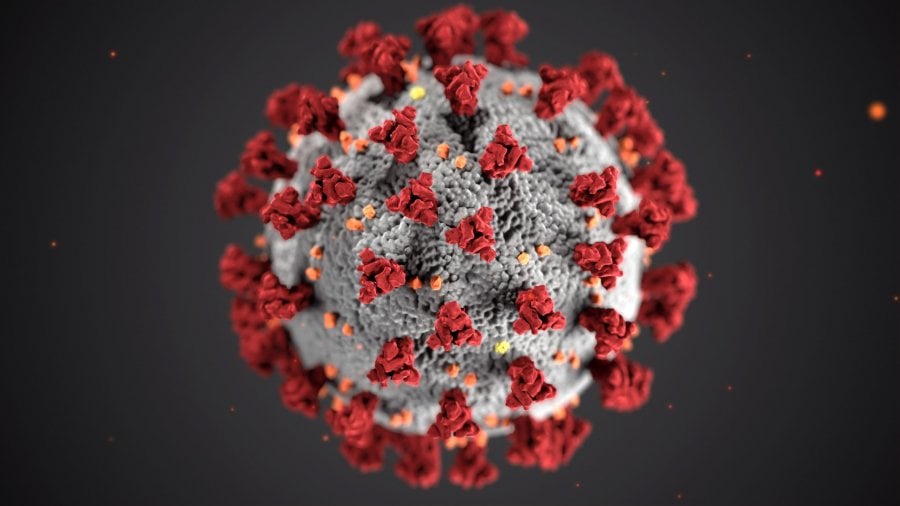New modelling estimates the potential impact of the new COVID-19 strain
4 January 2021 London School of Hygiene & Tropical Medicine London School of Hygiene & Tropical Medicine https://lshtm.ac.uk/themes/custom/lshtm/images/lshtm-logo-black.png
Illustration of COVID-19. Credit: CDC/Alissa Eckert
In response to this development, research from LSHTM's Centre for Mathematical Modelling of Infectious Diseases (CMMID) analysed the potential impact of this new strain on the UK, and what measures would be needed to reduce the R number to below 1. Dr Nicholas Davies, Assistant Professor of Mathematical Modelling, explains the findings:
"The novel SARS-CoV-2 variant VOC 202012/01 appears to have spread rapidly in the south east of England, prompting a new set of Tier 4 restrictions from the UK government. A new preprint from the London School of Hygiene and Tropical Medicine assesses the transmissibility of this new variant and whether it has a higher likelihood of leading to hospitalisation or death compared to existing variants.
"Based on early data, the preprint finds that VOC 202012/01 may be 50-74% more transmissible than pre-existing variants of SARS-CoV-2. Although the researchers could not find any evidence from the data so far that there is any increase in the risk of hospitalisation or death for individuals who contract this new variant, the substantial increase in transmissibility means that recent increases in infection in the South East, London, and East of England may continue and spread to all regions of the UK unless rapid action is taken to control transmission. The researchers examine potential efficacy of interventions including Tier 4 with and without schools closed for January 2021 and how the UK’s vaccine rollout may reduce the potential burden of this new variant.
"From the scenarios they assessed, they conclude that a substantially increased vaccine roll-out and school closures for January 2021 may be needed to prevent COVID-19 deaths and hospitalisations in 2021 from exceeding those in 2020. The estimate of 50–74% increase in transmission is consistent with an estimate from another research group of 50-70% which was widely quoted in the media over the weekend. However, the researchers stress that given the urgency of the situation they were not able to assess all possible control options, and that more data will clarify the picture in the coming weeks and help to indicate the potential impact of control measures (including school closures) and for how long these may be needed."
***This research is a pre-print and has not yet been peer-reviewed***
Publication
Nicholas Davies, Rosanna C Barnard, Christopher I Jarvis, Adam J Kucharski, James D Munday, Carl A.B. Pearson, Timothy W Russell, Damien C Tully, Sam Abbott, Amy Gimma, William Waites, Kerry LM Wong, Kevin van Zandvoort, CMMID COVID-19 working group, Rosalind M Eggo, Sebastian Funk, Mark Jit, Katherine E Atkins & W John Edmunds. Estimated transmissibility and severity of novel SARS-CoV-2 Variant of Concern 202012/01 in England. Pre-print.
If you enjoyed this article and would like to build a career in global health, we offer a range of MSc programmes covering health and data, infectious and tropical diseases, population health, and public health and policy.
Available on campus or online, including flexible study that works around your work and home life, be part of a global community at the UK's no.1 public health university.